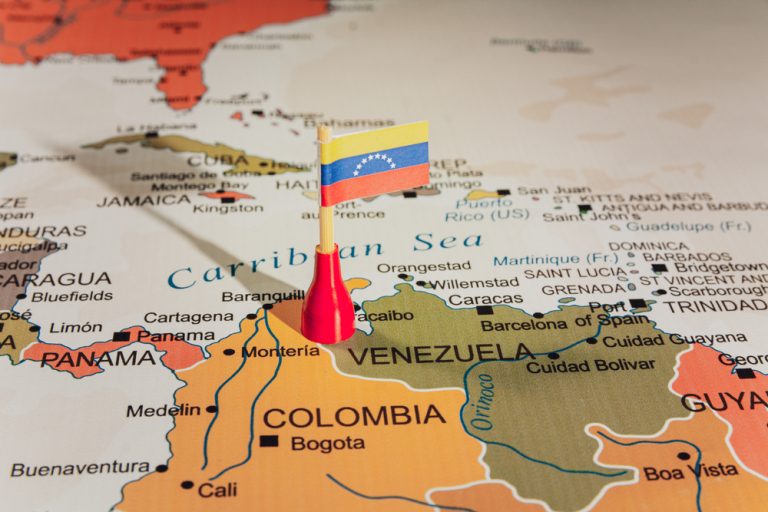
Pro-Palestinian protests undermine the unity of the already “sick” Tories
The pro-Palestinian protests have finally touched British politics directly, while for the past few months they have been affecting it indirectly. The situation in London became more and more chaotic as the day of the rallies, and thus the November 11 pogroms, approached. The Metropolitan Police, guided by the opinion of Sadiq Khan, a Labour mayor and ethnic Pakistani loyal to the protesters, allowed the pro-Palestinian “Million Man March” to take place in the heart of London, contrary to the opinion of Rishi Sunak’s cabinet. The police were immediately attacked with indignation by Interior Minister Suella Braverman, who compared the event to the pogroms between Irish Catholics and Unionist Protestants in Ulster. In her opinion, if the protest had not been so politicized and “progressive,” the police would not have allowed a religious riot in the British capital for the sake of political correctness. Initially, many conservatives solidarized with her, and began calling for Braverman to fire the leadership of the London police for disobeying the ministry. The leftists are demanding Braverman’s resignation, and it was believed that this would not be a bad scenario for her to avoid responsibility for the consequences of the pogrom and to build up an image of a principled fighter for law and order and against the overpopulation of migrants and their lobbyists. It was no secret that British elites were trying to take advantage of the war in Gaza to earn their political capital. It was not for nothing that in November it became known about the joint development of the disputed gas fields in the Mediterranean Sea by Turkey in cooperation with British Petroleum, and that the Israelis could now be thrown out of the project and the Greeks, who also claimed a share in the gas, would not be allowed in. However, it was also clear that the ongoing war threatened to destabilize Britain. 80% of the population is in favor of a truce, including the already mentioned mayor of London, as well as almost all Labour and some Conservatives, i.e. representatives of the country’s political elite. Even before the march, it could have been predicted that hundreds of thousands of pro-Palestinian activists would definitely gather in the capital, to be met by both the police and right-wing fan groups. Against this background, the Interior Ministry was paralyzed by internal division, and the Tories, with their 20% rating, had lost the remnants of their legitimacy, and the upcoming events threatened to have even sadder consequences for them.

After the march began on November 11, clashes with the police began in London. The first to enter the city center were right-wing fan groups led by activist Tommy Robinson, They temporarily took control of the Cenotaph, a war memorial in the heart of the British capital. This was done because pro-Palestinian protesters holding their Million Man March in London would surely try to drape the Cenotaph with their flags, as they had already done with other memorials. This is what caused such fierce outrage from the British right-wingers, who themselves occupied the memorial under the slogan: “With England to the death!”. The police, brought to London from all the surrounding cities, were proactive and tried to detain the right-wing activists before the participants of the pro-Palestinian “party” arrived. This expectedly led to a mass brawl and the arrest of more than a hundred persons, while Robinson himself decided not to stay “with England until death”, jumped into a cab in time and fled the scene. The attitude of the police to pro-Palestinian activists was quite different, and it was not only and not so much about sympathy as about the fact that they had gathered not just a couple of thousand, but tens and hundreds of thousands. This was because they are being organized from all over the U.K. on buses and a one-way ticket was very cheap at around £25. The protests in support of Palestine were joined by Labor party cells, always ready to rally against the Tories, and a significant Muslim diaspora in the country, whose number, according to the most conservative estimates, exceeds 4 million people, and therefore they were able to gather a march of millions. Symbolically, at this time, old and new England came face to face in London, and several orders of magnitude more activists came out in support of the new.
In the end, the pro-Palestinian protest in London set a record in terms of numbers. Organizers were sure that nearly a million or at least 800,000 demonstrators, bused in from all over the country, had gathered. The police counted a more conservative 300,000, which was still a huge number. Not without their fights with the police, but the latter dared to detain only a hundred protesters. Against this background, the right-wing fans were treated much more harshly, the most active of whom were quickly arrested, and the rest were dispersed into pubs and ordered not to come out while the pro-Palestinian march was going on. Hundreds of thousands of Britons have called for an immediate truce and consequences for their politicians, whom they accuse of genocide against the Palestinians. The Conservative government, under public pressure, not only called for a non-humanitarian pause in Gaza, but also drew conclusions in domestic and personnel policy. Rishi Sunak’s cabinet changed its initial attitudes, and Suella Braverman, who had criticized the London police for allowing a pro-Palestinian “Million Man March,” was fired. Despite her looks and background, she represented a right-wing and almost “nationalist” Tory faction that has now been drastically weakened. The head of the Home Office will now be James Cleverly, who immediately, to calm the situation, promised to stop tens of thousands of illegal immigrants crossing the Channel by boat and coming into the country from France. Cleverly was once a key lobbyist for the “Ukrainian direction”, but now, amid the defeat of problems in this area, the population is tired of the Ukrainian agenda, and he is trying to get away from it in time and take a more favorable anti-migration agenda. Now Cleverly’s position as foreign policy chief has suddenly been given to David Cameron. The retired prime minister, long retired from the House of Commons and big politics, is being rushed back there and even urgently made a lord so he can take the ministerial chair. Cameron resigned after voting for Brexit in the 2016 referendum. Since then, he has been involved in lobbying, and has often been caught up in corruption scandals.
Now he is actively luring Chinese investment into Sri Lanka, for which he has been accused of working for the “communists”. Cameron’s arrival means that the Conservatives will be polarized before the elections, and in the election campaign they will try to play centrism, having seen with their own eyes the weakness of right-wing ideas during the pro-Palestinian marches, the consequence of which was Braverman’s dismissal. It should be noted that in foreign policy this is a landmark victory for China, with which the U.K. is now building relations that bypass the U.S. Nevertheless, the Tories, who have decided to play the momentary game, are unlikely to change the outcome of the upcoming elections. Moreover, such a brazen and sneaky change of political values will undermine the party’s internal unity and turn away those voters who were loyal to the ideas of British conservatism, further weakening its position in the future. The future fate of the U.K. is increasingly unclear, and if it does not finally become a “northern Pakistan”, it will in any case face serious civil upheaval.

